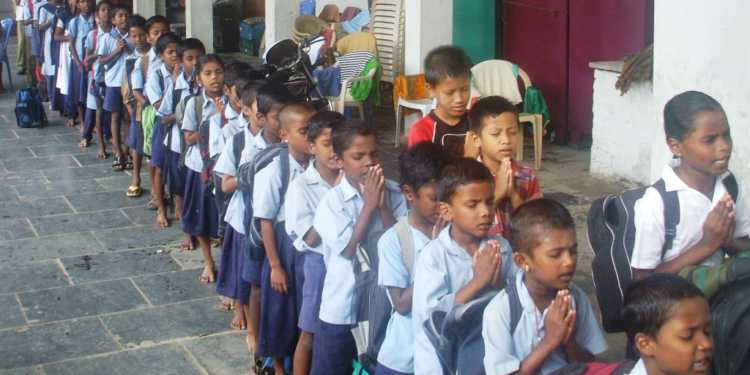Quality education is the only solution for most of the barriers of development of India from economic ills such as unemployment and poverty to social ills such as casteism and chauvinistic character of the society. The Indian Education system has never been of the top notch and does not cater to the job oriented needs of our society. A further blow was dealt when the No detention Policy was rolled out in conjunction with the Right to Education Act in 2010.
Section 30(1) of the said Act clearly states that no child shall be made to pass any board examination until the completion of elementary education. Thus, a student cannot be held back in the same class until the end of class VIII, i.e. when the student attains the age of 14 years. Thus, we have established a system whereby we produce Secondary and High School students even without testing their capabilities and understanding of the most basic of concepts creating a society of officially educated yet incapable masses. Now, the TSR Subramanian Committee which was set up by the Ministry of Human Resource and Development to prepare a National Education Policy has recommended that the current No detention Policy be suitably amended and the No detention Policy be removed from the upper primary classes, i.e. V to VIII standards and limited upto the Class V. Therefore, we list down reasons as to why the recommendations of the aforementioned committee need to be taken seriously.
Unequipped students:
According to the Delhi Government, more than one in every two students of the students in government schools failed to clear the Class IX examination last year. i.e. the first real examination of their lives. The primary reason being the fact that most of the students were unfamiliar with the concepts of the first eight standards making them unequipped to deal with examinations. This made it extremely difficult for the teachers to deal with confused students and to cover the curriculum at the expected pace.
Loss of seriousness:
Since, the students and the teachers know beforehand that there is no risk of failure and thus both of them develop a casual attitude. Automatic promotion has dried up all incentive which has deteriorated the quality of education throughout the Nation. With no fear of detention, the students simply start skipping classes and stop paying attention in the classes that they attend.
Focus should be on ‘right to education’ rather than ‘right to schooling’:
The proponents of the No detention Policy had argued that the elimination of fear to fail will help in reducing the dropout rate and that has actually happened too. But the supporters of this policy have failed to distinguish between schooling and education, the latter being a much broader concept than the previous one. There is no point in retaining the students in school if they are not able to learn anything and get educated in the true sense of the term. Thus, the NDP has frustrated the object of the RTE instead of achieving it.
Conclusion:
Until now, 22 states have shared their views on the No detention Policy out of which only 3 states have advised to continue with the No detention Policy whereas the other states have recommended against it. Therefore, it is absolutely clear that there is almost a consensus across the political spectrum against the No detention Policy, especially with the Delhi Government tabling a bill against No detention Policy in the upper primary classes but the same was not given assent by the Centre as it was sent without the prior consent of the Lieutenant-Governor.
Thankfully, The human resource development ministry has sought to know from the law ministry if the policy of promoting all school students till Class VIII each academic year can be reversed without amending the Right to Education Act passed during the UPA government’s tenure.
Further Reading:
http://economictimes.indiatimes.com/articleshow/53549304.cms?utm_source=contentofinterest&utm_medium=text&utm_campaign=cppst




























